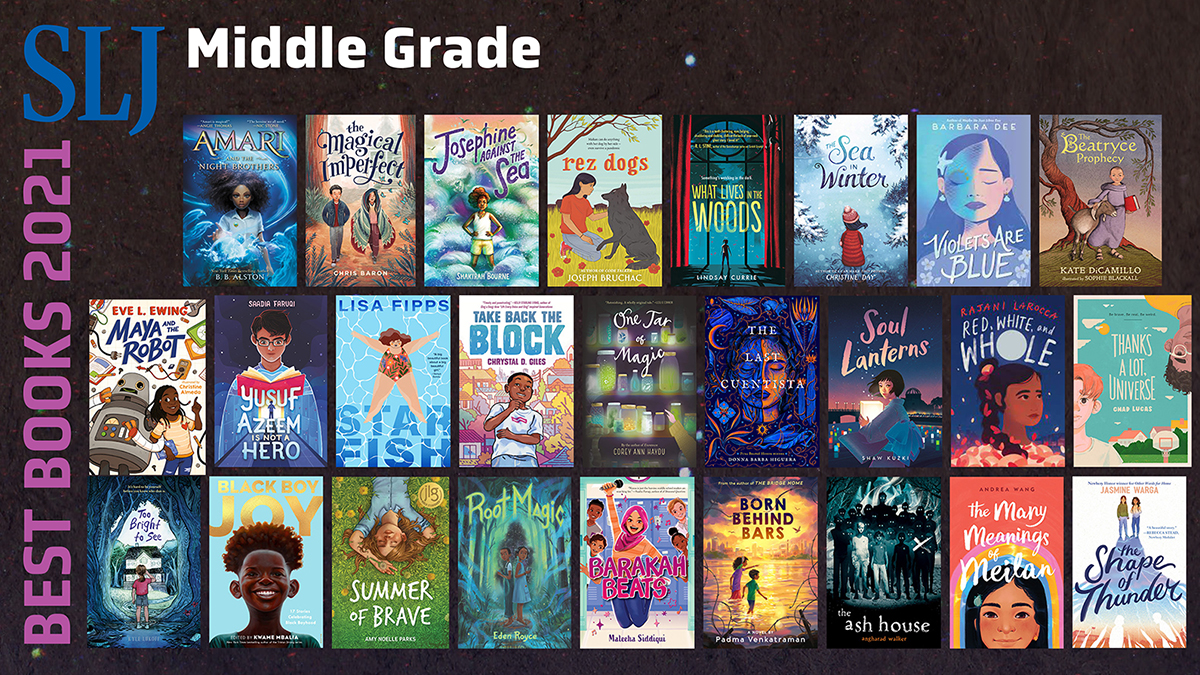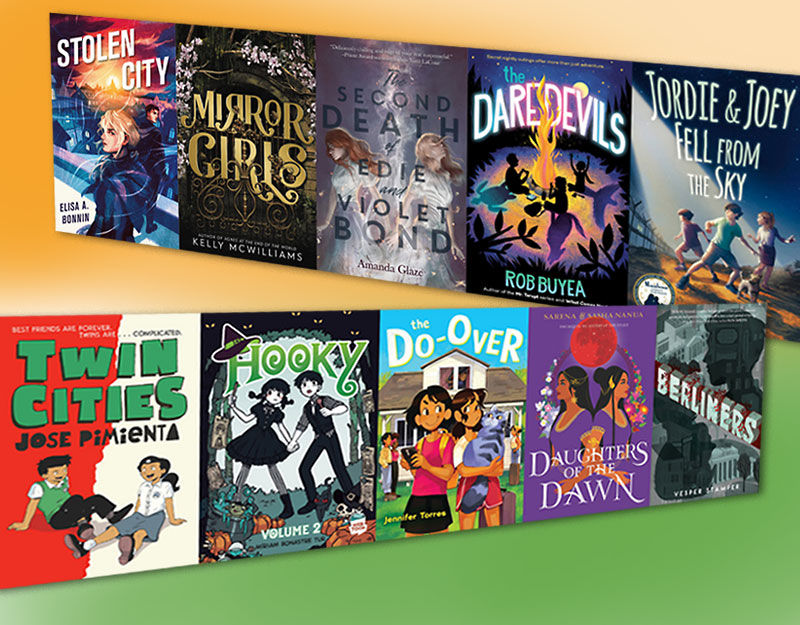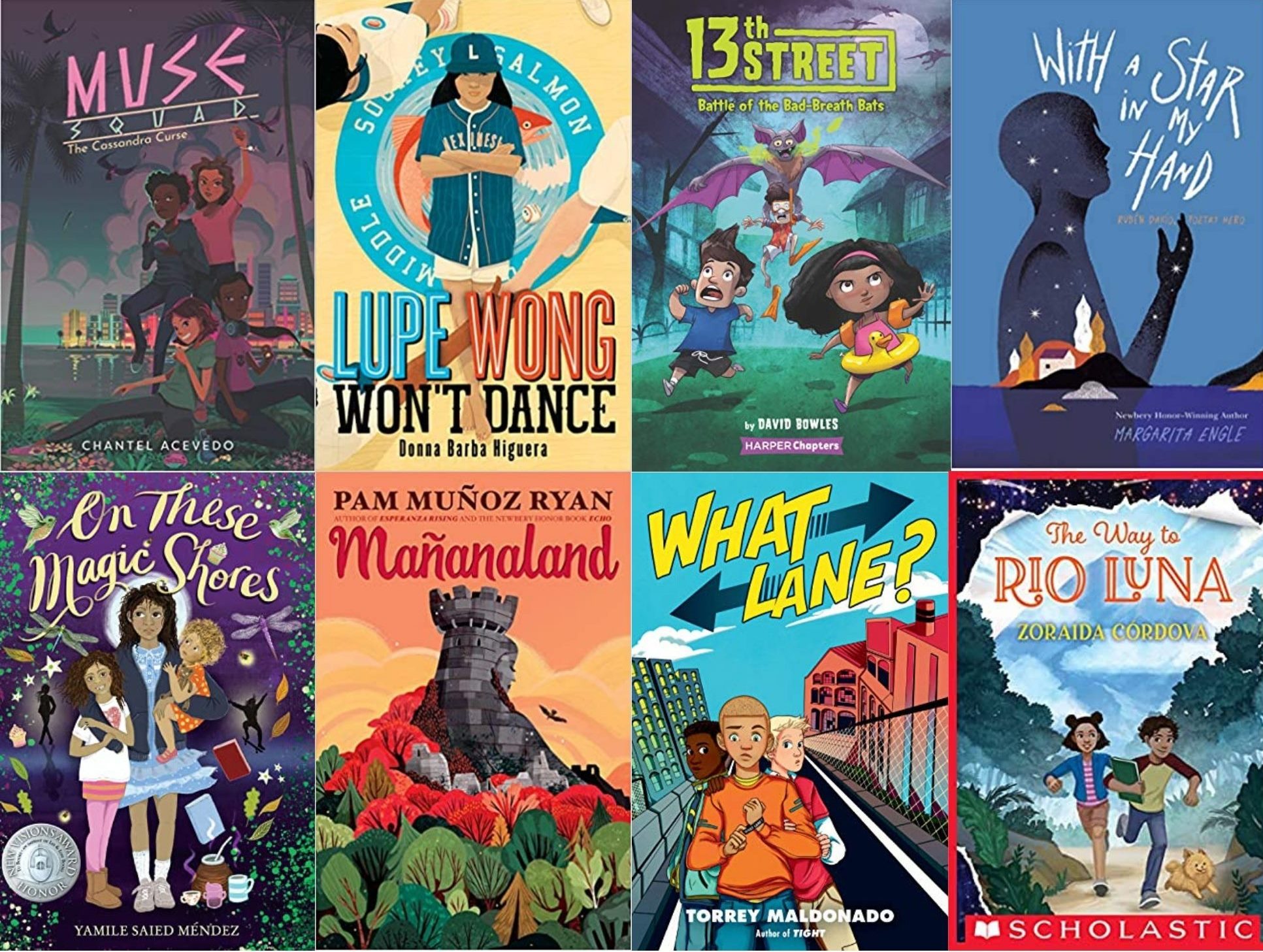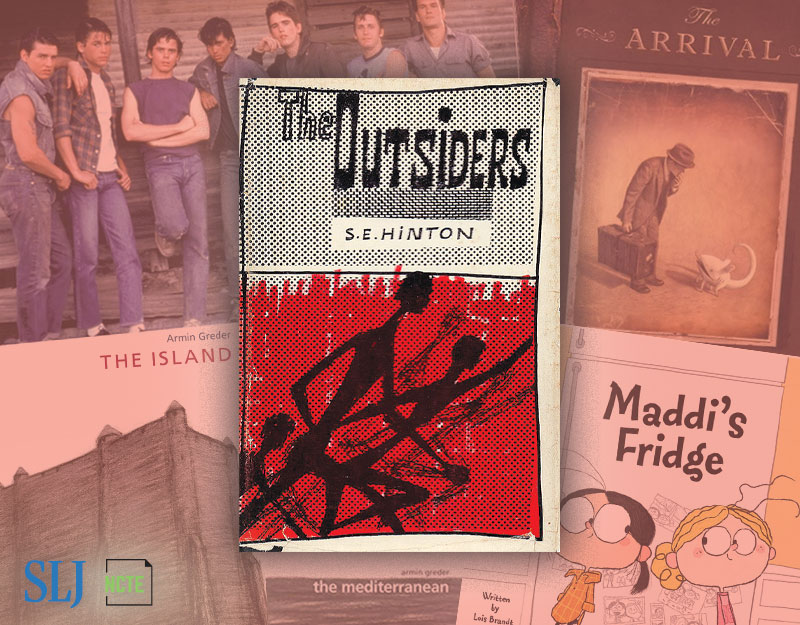Sunday Reflections: Who are we marketing YA lit to?
 This past week I sat down with The Teen to binge watch Veronica Mars, and I was excited to share what is arguably one of the best teen shows ever created with her. But after a couple of episodes The Teen got up and went to her room. It’s not that she hated it, it just didn’t feel like it was for her. It didn’t speak to her the way it spoke to me. It felt dated.
This past week I sat down with The Teen to binge watch Veronica Mars, and I was excited to share what is arguably one of the best teen shows ever created with her. But after a couple of episodes The Teen got up and went to her room. It’s not that she hated it, it just didn’t feel like it was for her. It didn’t speak to her the way it spoke to me. It felt dated.
She has also watched things like Buffy the Vampire Slayer (which she loves), Gilmore Girls (which she tolerated), and a few other shows that people in their 30s and 40s speak about reverently. She didn’t finish Firefly. She can’t stand any iteration of Star Trek.
ADVERTISEMENT
ADVERTISEMENT
In fact, the only show I have found that we have a mutual love for is Daria.
I thought of that this morning when I saw a list go through my Twitter feed that said If You Love Veronica Mars you’ll love these books. And I was immediately interested in the list. But then I thought about The Teen’s reaction to this show and wondered: Who is this list marketing these YA titles to? It’s an important question.
Now make no mistake, I myself have done this very thing. If you search through TLT you will find lists for people who like Buffy the Vampire Slayer, Doctor Who and Sherlock. Although Doctor Who and Sherlock are both currently popular shows with my teens so I will argue that this is somewhat different then using an older show that is no longer on the air.
Buffy the Vampire Slayer ended in the early 2000s. I remember watching the last episode when The Teen was around 1.
Freaks and Geeks ended in the year 2000.
Veronica Mars ended in the year 2007.
My So Called Life ended in the year 1995.
John Hughes movies all took place in the 1980s.
And yes, SOME teens have access to these shows and movies. But not all.
Some of our go to marketing comparisons for YA literature are simply not relevant to today’s teen readers. Yes, there are always outliers. But if we want to reach a wider teen audience, I would argue we need to use more up to date and relevant comparisons.
For example, instead of Buffy the Vampire Slayer, we could use Shadowhunters. It’s both a hugely popular book series and tv series. My teens watch it quite faithfully.
When I raised the issue this morning on Twitter, many people responded that these comparisons work on book sellers and librarians, and they do. I have less problems with a review journal that says this book is a great read for Buffy fans, but that means something to me. I have more issues with the tagline on the cover of a book that reads Buffy meets The Breakfast Club, because that seems to indicate you are marketing your book to people in their 30s and 40s as opposed to current day teen readers. And as a teen services librarian, I care very much about this. I have no problem with adults reading YA literature, I am an adult who reads YA literature. But I have a huge problem with the way that YA has become increasingly about adult readers as opposed to teen readers. Teen readers deserve to have literature written about and for them – and marketed to them in ways that help them connect with those books.
I also understand that authors want to sell as many books as possible, as do their publishers. Numbers matter and I get that. I really do. Being able to afford to feed my children is one of my most important life goals. But as someone who also genuinely advocates for teens and who has to work hard to connect teen readers with books, maybe we can take a second look at how, exactly, we are marketing those books.
I am a huge advocate for YA literature. I think it is high quality writing and that everyone can and should be reading it. But at the end of the day, I am also an advocate for teens. Teens need and benefit from that high quality literature being ultimately targeted to them. There is nothing more validating then a good YA book that speaks to where a teen is at life and let’s them know that they are not alone in what they are thinking, feeling, and going through. We can help teen readers find those books by marketing them in ways that speak to them, not their elders.
I’ll read every book that says if you like Buffy read this. But The Teen, to her that just means its a book for her mother, not her. But if I say Percy Jackson or John Green or Shadowhunters or Pretty Little Liars or something that is currently popular with teens, they will jump right on that.
Anyhow, that’s what I’m thinking about today. I don’t have good answers, just random reflections. Because it’s Sunday.
Filed under: Sunday Reflections
About Karen Jensen, MLS
Karen Jensen has been a Teen Services Librarian for almost 30 years. She created TLT in 2011 and is the co-editor of The Whole Library Handbook: Teen Services with Heather Booth (ALA Editions, 2014).
ADVERTISEMENT
ADVERTISEMENT
SLJ Blog Network
Notes on April 2024
Lifetime Achievement Awards and Upcoming Books: A Talk with Christopher Paul Curtis
Unhappy Camper | This Week’s Comics
ADVERTISEMENT








There was a time when teens were the biggest readers of young adult fiction, Those days are long over.
“By some market estimates, nearly 70% of all YA titles are purchased by adults between the ages of 18 and 64”
https://www.thebalance.com/the-young-adult-book-market-2799954
How publishers are marketing YA books makes perfect sense in light of market conditions. If adults would just go back to reading adult books, and leave teens some literary turf of their own that we don’t need to trod all over like a herd, things would be better for everyone. Teen books could then again be marketed for teens. Imagine that!
This is really interesting… I think it was TLT a long while ago that did not approve of the “New Adult genre” of books that is currently a thing for the 20s and 30s crowd of people. Everybody deserves entertainment, in the way they want it. YA fiction is attractive for the 20s and 30s crowd, because New Adult isn’t yet a thing people know about it. There is a whole group of people the library is neglecting… a crowd that doesn’t want to do the bar scene, that may or may not have kids, that just wants to unwind and have some quiet time reading a fun book that is easy to escape into and doesn’t always include the boring domestic marital monetary grownup stresses of life. Teen books for teens? Fine. But how about New Adult books for… New Adults? Imagine THAT!